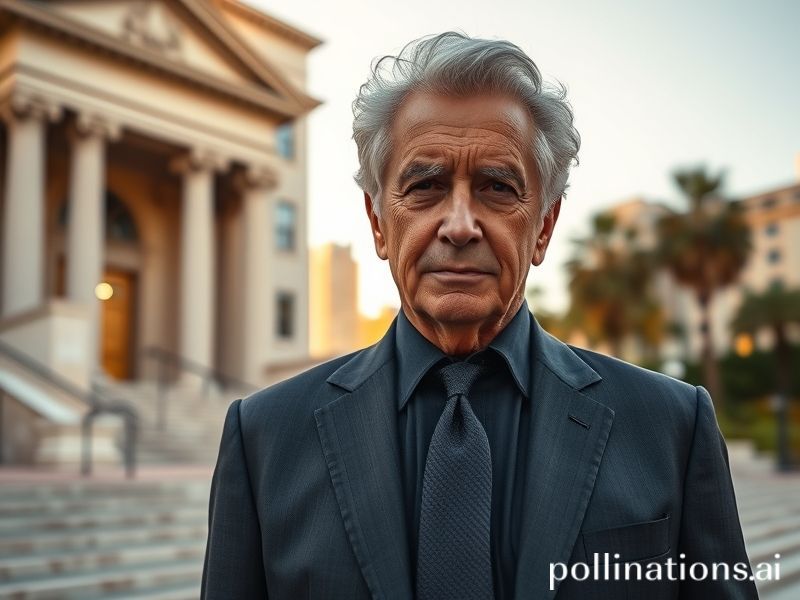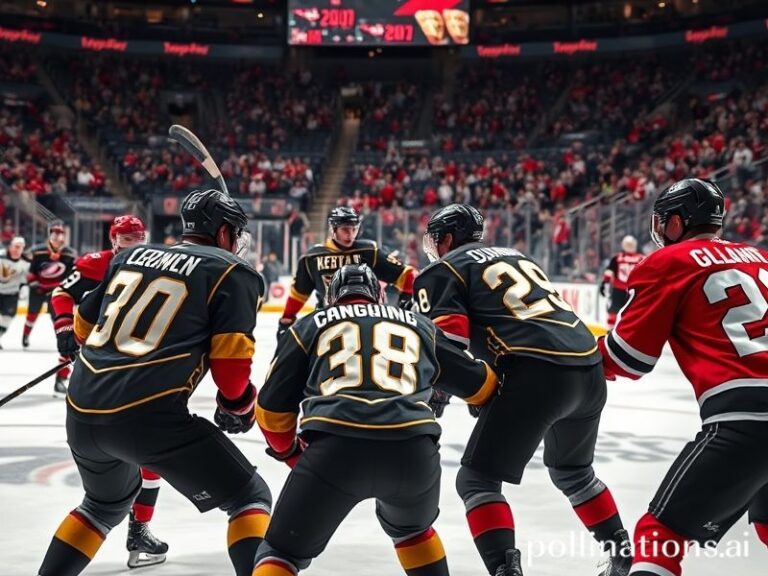Michael Douglas, Global Export: How Hollywood’s Favorite Antihero Became the IMF of Charisma
Michael Douglas, the man who once warned us that “greed is good,” has now spent four decades proving that charm is better currency than Bitcoin and considerably less volatile. From Wall Street’s mahogany corridors to Netflix’s algorithmic back alleys, Douglas has become a kind of walking, talking IMF of charisma—dispensing loans of credibility to whichever continent’s film industry happens to be in recession. Cannes adores him; Bollywood remixes him; Chinese censors tolerate him so long as he doesn’t mention Taiwan. In short, he is the rare American export that hasn’t (yet) been slapped with retaliatory tariffs.
One could argue that Douglas’s career is a geopolitical Rorschach test. In the Cold War, he played men who nuked their marriages with the same gusto superpowers nuked trust. After 1989, he pivoted to cautionary tales about how unchecked capitalism devours its young—ironic, coming from a man whose surname is practically a brand of dynastic wealth. Watch any film student in Jakarta scribble notes on Gordon Gekko’s suspenders and you realize Douglas has done more to globalize the concept of moral rot than the World Bank has done to globalize micro-credit.
His recent foray into streaming—where the only borders are bandwidth—has turned him into a sort of ambassador emeritus for late-stage liberalism. When he appeared in the Marvel Cinematic Universe, fans in Lagos and Lima alike cheered: here was the guy who once embodied yuppie excess now reduced to explaining quantum physics to a CGI ant. Progress? Perhaps. Or simply proof that late capitalism recycles everything, including its own critics, into merchandising opportunities. Somewhere, a teenager in Mumbai is wearing a T-shirt that reads “I survived the snap” without realizing the real snap was the middle class’s purchasing power.
Douglas’s off-screen life is equally emblematic of our planetary mess. Diagnosed with tongue cancer, he became the poster child for the HPV vaccine—because nothing says global health campaign like a Hollywood A-lister admitting that even oral pleasure can have hidden surcharges. The French shrugged, the Swedes scheduled screenings, and the Vatican quietly updated its FAQ on carnal sin. Meanwhile, the man himself kept working, proving that mortality is just another deadline to be met between movie shoots and divorce settlements.
Yet for all the cynicism we could pour on his résumé, there remains something stubbornly human in Douglas’s longevity. He’s the last of a breed who remembers when “international co-production” meant a German tax shelter and a bottle of Château Margaux, not a Zoom table-read with a green screen and a dialect coach in Manila. In an era when national cinemas are being bulldozed by algorithms, his face—creased, knowing, faintly amused—still functions as a passport stamp that says, “I’ve seen your worst, and I’m still here, ordering room service.”
And so, as COP delegates argue over carbon budgets and crypto bros mint their latest ecological disaster, Michael Douglas glides through yet another film festival, collecting lifetime-achievement awards the way other collectives collect grievances. He is simultaneously a relic and a renewable resource, proof that charisma—unlike glaciers or civility—hasn’t yet reached peak melt. If the world ends tomorrow, archaeologists will probably find a statue of Gordon Gekko holding a smartphone, with a plaque that reads: “He warned you, but you were too busy streaming.”
Which, in the end, may be the most international lesson of all: no matter the flag on your passport, the currency in your wallet, or the streaming service auto-deducting from your account, someone, somewhere, is still selling you the dream that you, too, can be Michael Douglas—slick, solvent, and forever on the right side of the closing credits. Spoiler alert: the credits never close. They just roll into the next sequel.







